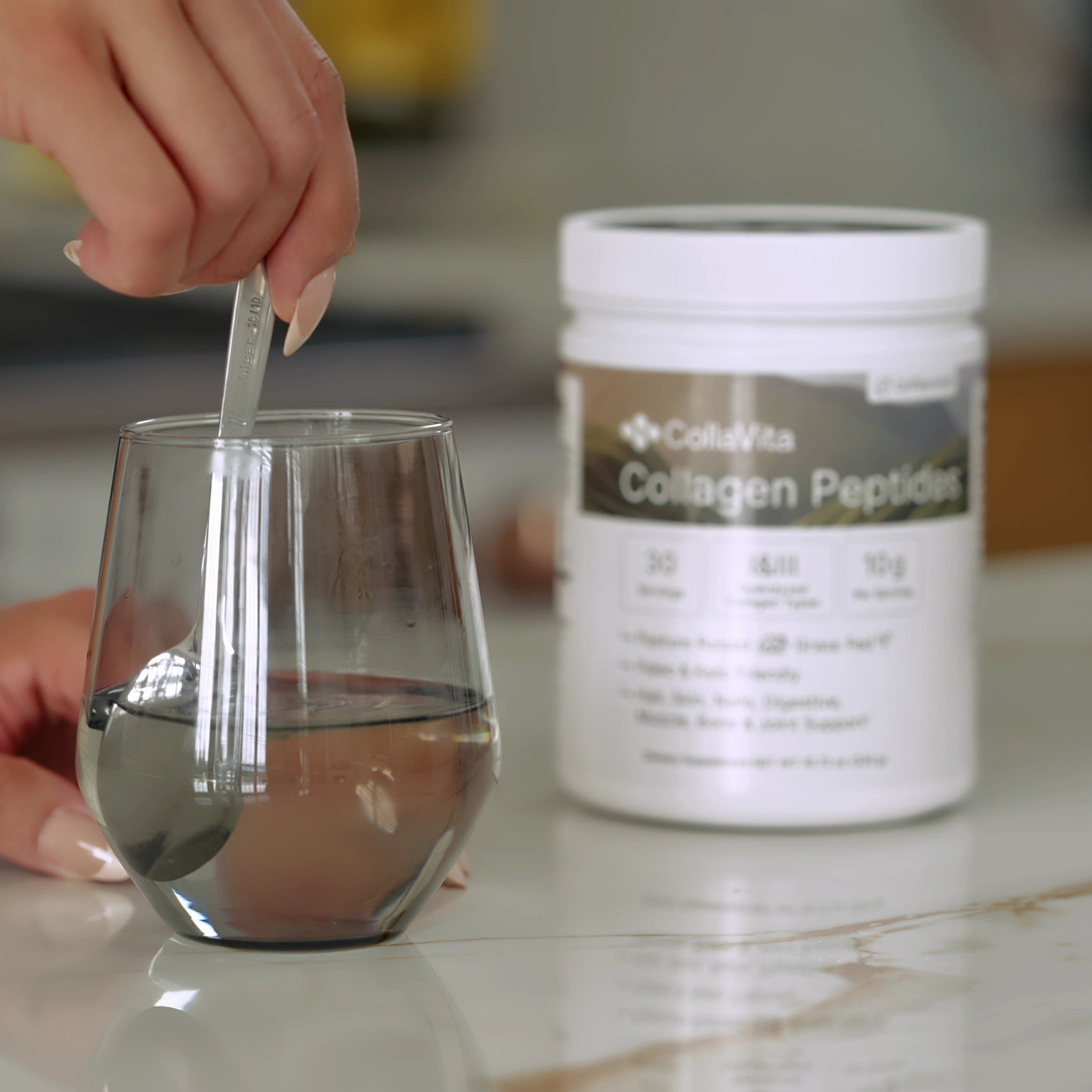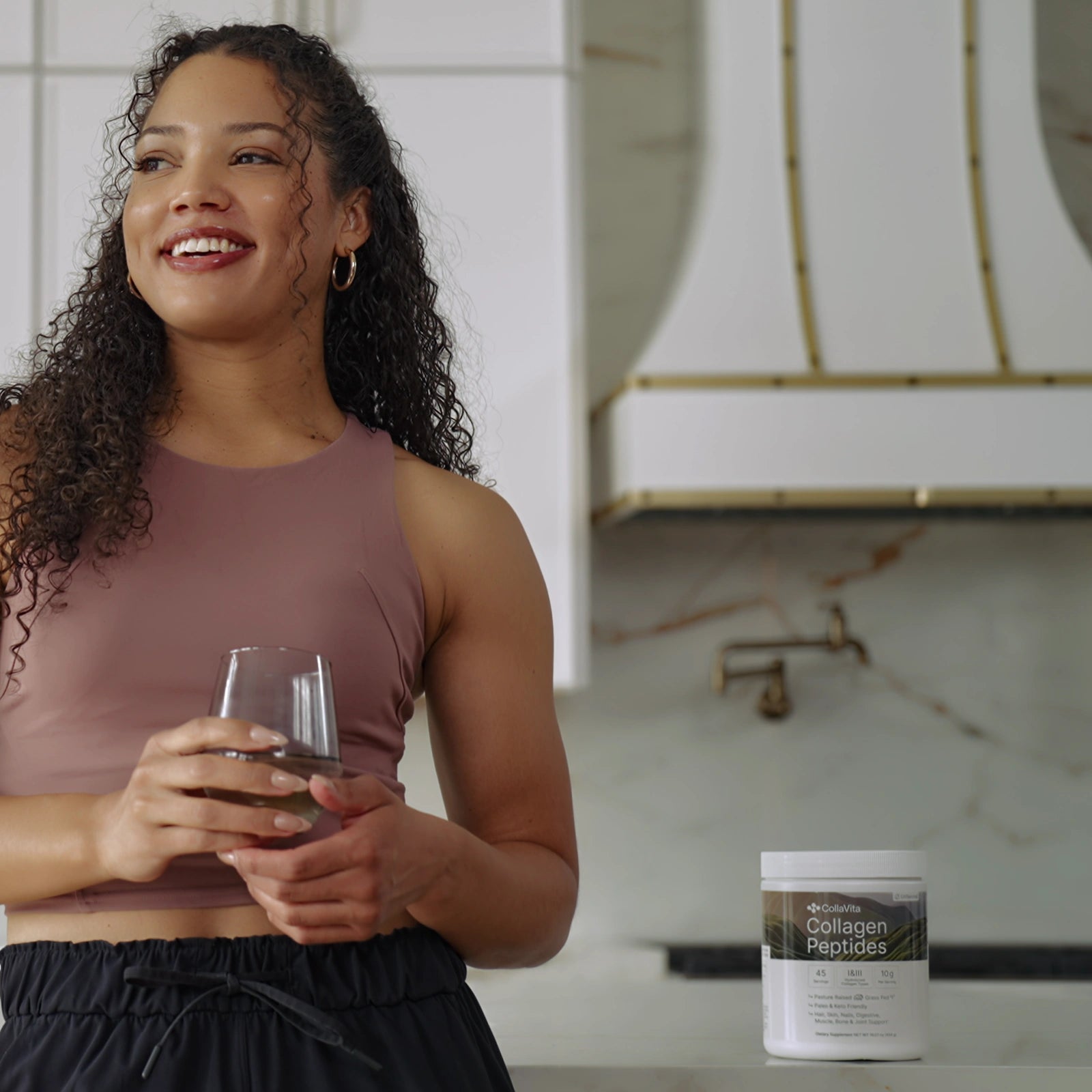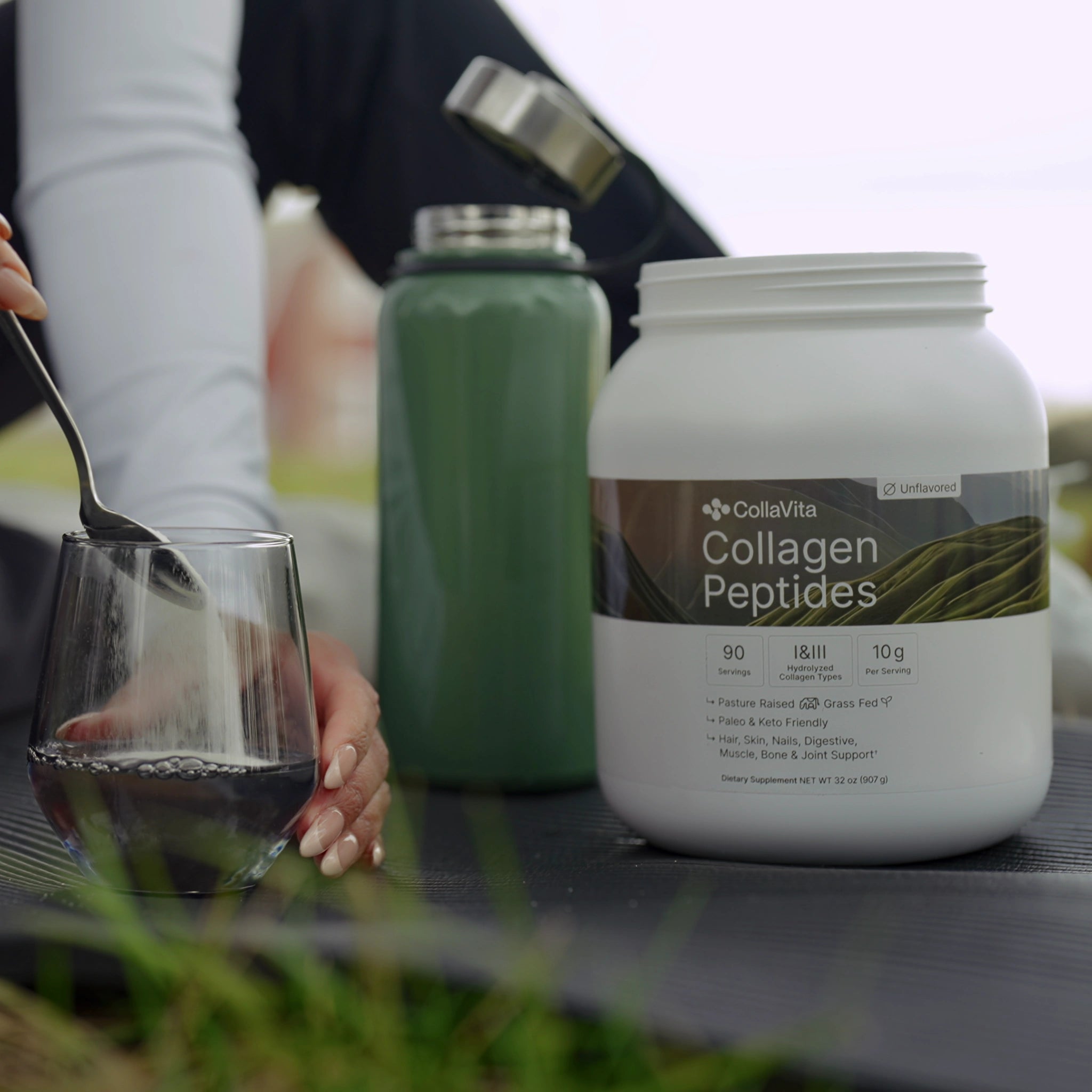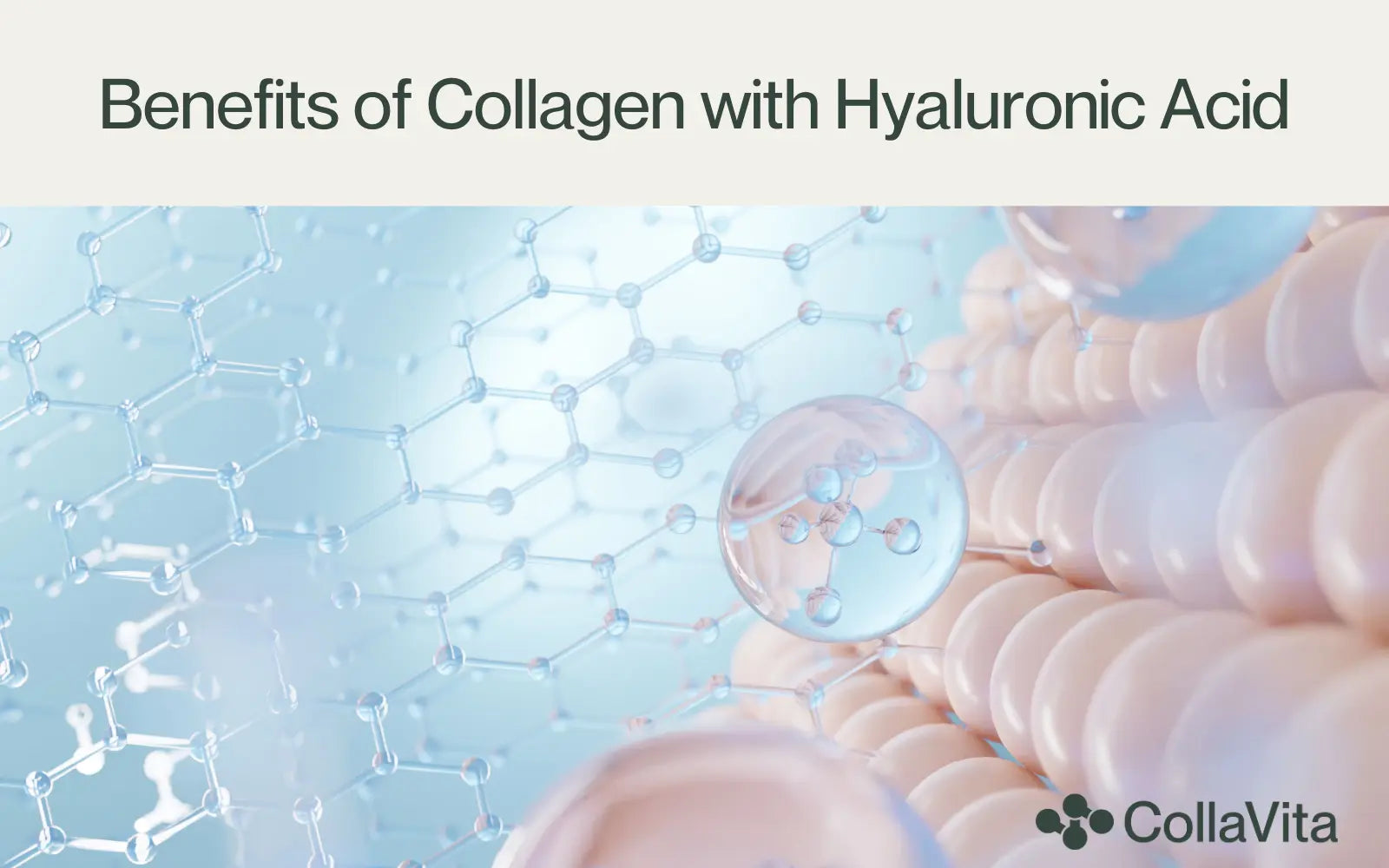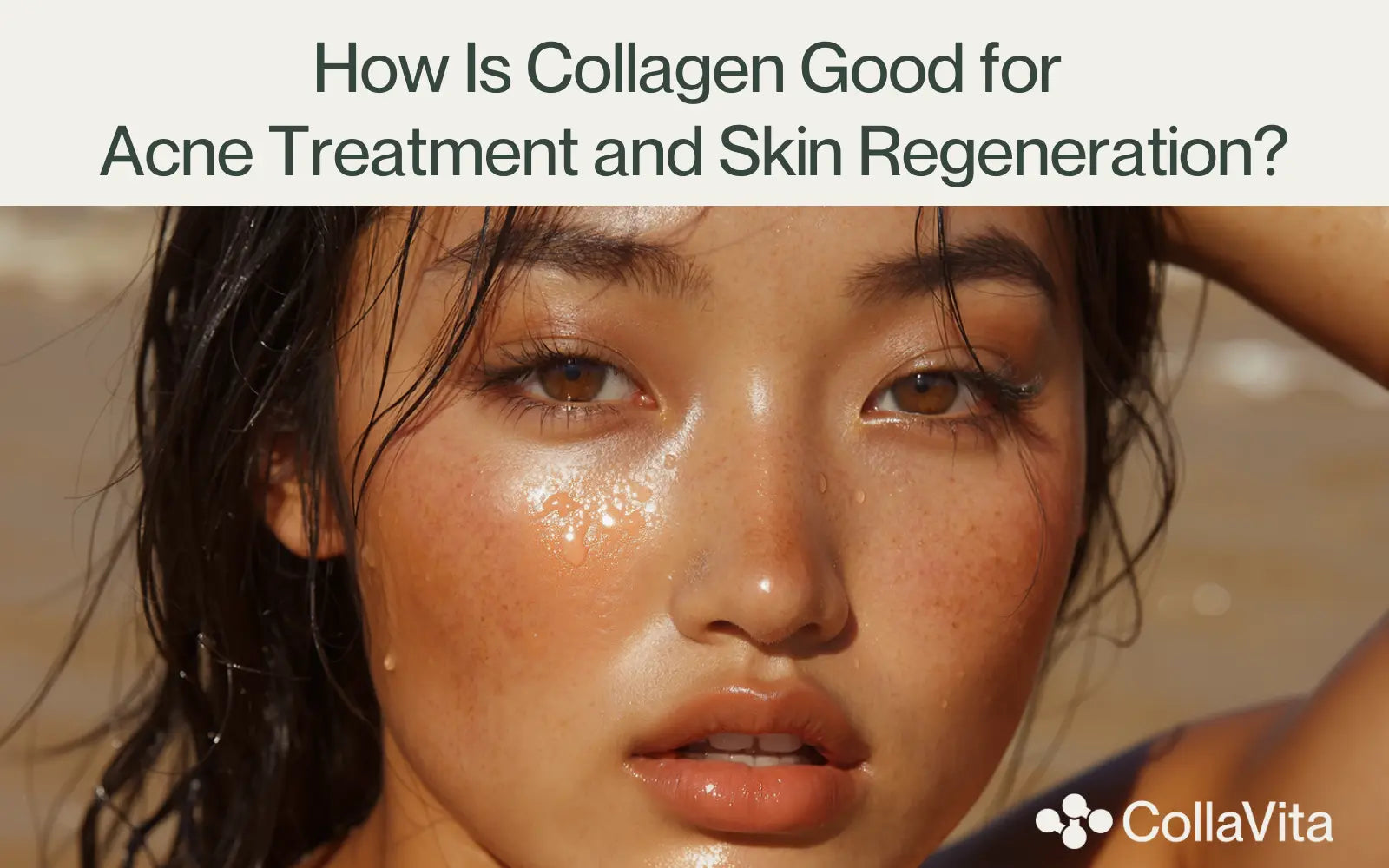Does Collagen Help with Acne and Acne Scars?
Collagen helps with acne and acne scars in several ways. Although collagen and skin characteristics offer little to address the underlying causes of acne, such as hormones or germs, they assist in maintaining hydrated skin, which in turn reduces the production of sebum, the oil that clogs pores and causes acne. It also helps the skin recover from acne scars and improves the overall appearance of the skin. When it comes to skin health, collagen really shines as it hydrates the skin and controls sebum production, which helps reduce acne.
Can Collagen Prevent Acne Breakouts?
Collagen can help prevent acne breakouts in indirect ways. Many people wonder, "Does collagen make you break out?" Acne, characterized by pimples, blackheads, and blotches due to sebum accumulation and inflammation, is not directly addressed by collagen, as its roots include bacterial infections and hormonal imbalances. However, collagen offers some indirect benefits, such as aiding in acne prevention and managing its after-effects.
One key benefit is maintaining skin hydration. Dry skin can lead to the an overproduction of sebum, which clogs pores and causes acne. Collagen, by boosting hydration, can help keep sebum levels in check, potentially reducing acne incidence.
For post-acne scarring, collagen is particularly effective. Percutaneous collagen induction (PCI), a treatment involving multiple sessions, has shown a statistically significant reduction in acne scar severity, with an average 31% improvement in skin texture irregularity, and is safe across all skin phototypes without risk of depigmentation, according to the study in the J Dermatolog Treat(1). This is crucial as acne scarring, related to inflammation and damage to collagen fibers, can be mitigated by stimulating collagen remodeling or forming new collagen through treatments like chemical peels and laser therapies.
How Collagen Helps in Acne Scar Healing?
By aiding the skin's natural regenerative process, collagen lessens the visibility of scars caused by acne. It repairs damaged skin cells and improves skin texture so that scars become less prominent. Collagen also helps the skin to maintain moisture levels. This is a critical factor in preventing excess sebum production because excess sebum can lead to acne formation.
Although collagen does not directly treat the root causes of acne formation (such as hormones or bacteria), it strengthens the skin's structure and increases its healing capacity. This is especially important in healing post-acne scars. Treatments such as chemical peels or laser therapies stimulate collagen production, allowing new collagen formation or remodeling of existing collagen to improve the appearance of scars. If you're looking for a supplement that helps with scarring, consider trying collagen, as it can improve skin elasticity and support the healing process of scarred tissue.
What Are the Best Types of Collagen for Acne and Skin Repair?
Type I and Type III collagen are the best types for acne and skin repair. These collagen types support the skin's structure, elasticity, and healing processes, helping to reduce acne scars and improve overall skin health.
Type I Collagen:
Type I Collagen makes up 80-90% of the skin and provides structural support to the skin. It plays a critical role in reducing the appearance of acne scars and skin repair.
Type III Collagen:
Type III collagen makes up 10-20% of the skin, contributes to elasticity, and is especially important in the early stages of wound healing. It indirectly prevents acne formation by maintaining skin moisture.
Type I and Type III collagen play a predominant role in skin repair, while additional collagen types that contribute to skin elasticity include the following.
Type IV:
Type IV collagen functions as a basement membrane in the skin, reinforcing the epidermis and dermis while maintaining skin integrity.
Type V:
Type V collagen, present in modest quantities in the dermis, regulates the diameter of collagen fibers, which indirectly improves skin elasticity.
Type VI:
Although it is less common in the skin, Type VI collagen is crucial for firmer skin because it structurally supports cell adhesion.
Hydrolyzed Collagen vs. Other Forms
Hydrolyzed collagen is more easily absorbed than other types of collagen since it is available in small peptides and passes through the digestive system quickly. Because of these characteristics, hydrolyzed collagen supplement helps keep skin supple and hydrated, regulate oil production, and forestall the recurrence of acne. It also encourages skin regeneration and reduces the visibility of acne scars due to the rapid restoration of collagen levels by hydrolyzed collagen supplements.
Marine Collagen vs. Bovine Collagen for Skin Health
Marine vs bovine collagen are popular types of collagen that contribute to skin health. Both types of collagen can improve skin elasticity and moisture, but there are some differences between them.
Marine collagen is absorbed more rapidly by the body due to its typical processing into smaller peptides. This allows the skin to utilize the collagen more effectively. Bovine collagen is also well absorbed, especially when taken in hydrolyzed form; however, its molecular structure may be slightly larger, which may slow down the rate of absorption slightly.
Also, marine collagen is hypoallergenic (less allergenic), making it a safer option for those allergic to bovine products. While bovine collagen is also effective, some people may have a higher risk of allergic reactions. As a surprise detail, the anti-inflammatory effect of marine collagen may indirectly regulate sebum production in acne-prone skin, which may help prevent the formation of new acne.
Natural Collagen Boosters
Collagen is an important protein that keeps our skin looking young, healthy, and vibrant. However, our body needs certain vitamins and nutrients to boost collagen production. These nutrients also improve skin health and help solve problems such as acne. Let's take a look at the star players of this powerful team: Vitamin C, hyaluronic acid, and zinc. Let's explain how these nutrients benefit the skin in a natural and understandable way.
Vitamin C: Collagen's Best Friend
Vitamin C plays a leading role in collagen production. It supports the enzymes necessary for collagen fibers to form and maintain their strength. In other words, collagen cannot fully function without Vitamin C. But its benefits are not limited to this! It protects our skin from free radical damage caused by external factors such as sun rays and air pollution. Thanks to this protection, our skin stays healthier and fights the signs of aging.
Hyaluronic Acid Moisture Bomb
Hyaluronic acid is a miraculous ingredient that maintains the skin's moisture balance. Moisture is essential for the skin to look supple, vibrant and healthy. It also helps wounds heal faster. For example, minor skin damage or acne scars are repaired more quickly. Hyaluronic acid can control sebum (oil) production while moisturizing the skin. This reduces the risk of acne formation in oily skin. So, keeping your skin moisturized is actually a way to maintain oil balance!
Zinc Skin Repair Specialist
Zinc is a mineral that supports the enzymes involved in collagen production. It is also a complete savior for skin health: Zinc makes a big difference, especially during the healing period after acne or injury. Zinc also contributes directly to skin problems such as acne with its anti-inflammatory effect. When you experience zinc deficiency, your skin's healing process may slow down. That's why zinc is essential for skin health.
How to Use Collagen for Acne and Skin Regeneration?
To use collagen for acne and skin regeneration, opt for hydrolyzed collagen peptides, preferably in powder form, for high effectiveness. The daily dosage is 5-10 grams. Visible results can typically be seen within 4-12 weeks, and significant improvements in skin health and acne recovery take 3-6 months of consistent use. Choose reputable brands, consider additional skin-supporting ingredients, and consult a healthcare professional for personalized advice to maximize benefits.
So, is collagen good for the skin? Absolutely! Think of collagen as your skin's secret weapon, boosting elasticity and hydration and erasing fine lines like a magic spell.
SOURCES
(1) - Fabbrocini G, De Vita V, Monfrecola A, De Padova MP, Brazzini B, Teixeira F, Chu A. Percutaneous collagen induction: an effective and safe treatment for post-acne scarring in different skin phototypes. J Dermatolog Treat. 2014 Apr;25(2):147-52. doi: 10.3109/09546634.2012.742949. Epub 2012 Dec 8. PMID: 23216209.










